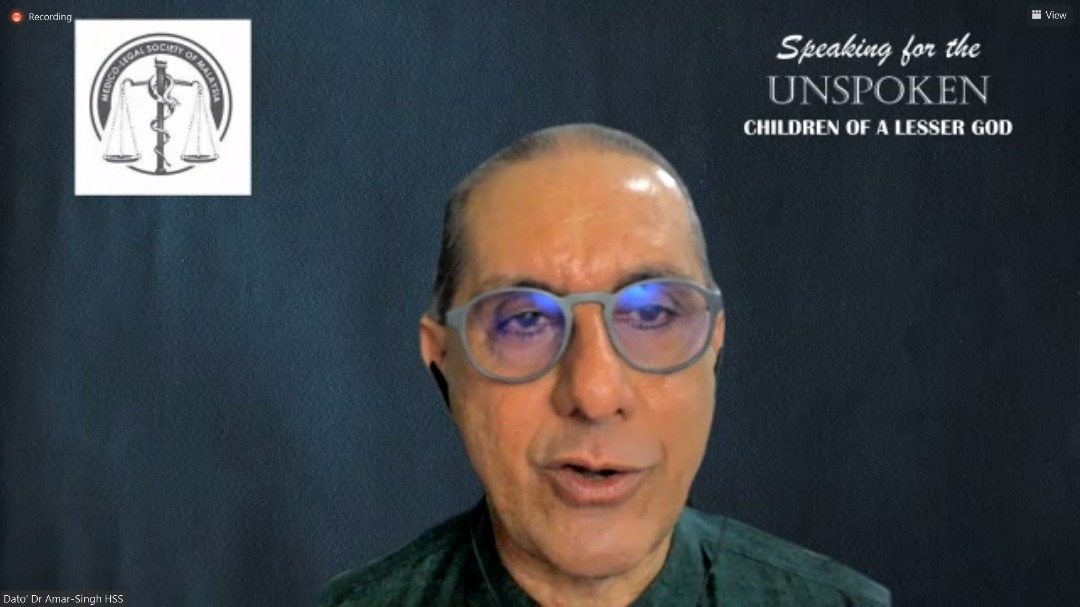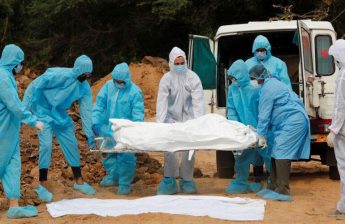KUALA LUMPUR, March 2 – Dr Amar-Singh HSS told the Ministry of Health (MOH) to recognise that about 15 per cent of all children have a disability and that more training to deal with children with disabilities is needed in medical schools.
The senior consultant paediatrician and researcher cited data from international studies that suggest that 10 per cent of all children have developmental problems in the preschool period and that, with age, the rate of detection increases to 15 to 17 per cent.
“This reality has yet to permeate the various government ministries, including the MOH, in terms of provision of services,” Dr Amar said at the Medico-Legal Society of Malaysia’s (MLSM) recent “Speaking for the Unspoken – Children of a Lesser God” webinar.
“Current health services for children with disabilities are better at assessment than intervention or education support. Rural communities have very limited access to any services. Vulnerable children in remote rural communities (Orang Asli, Penan, Interior of Sabah) have almost no access to services. Screening for children with disabilities is limited.”
Dr Amar said that local university medical students’ training curriculum for learning disabilities is almost non-existent.
“Most doctors have very limited knowledge and skills to evaluate children with disabilities and are not able to correctly identify children with learning disabilities. There is some growth in medical rehabilitation manpower but the delivery of services is still institutional based, adult and physical disability focused,” Dr Amar said.
He added that Covid-19 has worsened access to health care and services for children with disabilities. “Most parents have reported a loss of progress made due to a loss of services. Children newly identified to have disabilities now have a later diagnosis, later therapy and hence poorer outcomes.”
Dr Amar also noted that children with rare diseases are often underdiagnosed and underserved with limited access to therapeutic modalities already available internationally.
“Families are often hampered by a lack of access to information about the conditions. While adults with chronic illnesses programmes receive large budgets — such as chronic renal disease and HIV — children with rare diseases have yet to have funding that is ‘locked into the system’,” Dr Amar said.
He said the MOH and other government agencies need to recognise that 15 per cent of all children have a disability and plan, organise and budget accordingly.
“This means allocating sufficient human resources and funding to meet the need.
“There is also a need for MOH and CSOs (civil society organisations) to engage medical universities to dramatically improve the curriculum on recognition, assessment, therapy and community rehabilitation of children with disabilities,” Dr Amar said.
“The MOH needs to decentralise care to meet the disability needs of rural communities. We require outreach services for all rural, indigenous and poor urban communities.
“The MOH also needs to have an official definition of rare diseases and advocate for sufficient resources to support these children and families,” he added.







